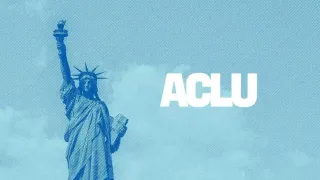March 25, 2017
Naan Starter: UK Curry Restaurants Feel Betrayed by Brexit
Danica Kirka READ TIME: 4 MIN.
Mohammed-Faizul Haque makes it all look so easy.
To a pan full of sizzling chicken he adds a ladle of orangey base sauce and then lemon, sending flames shooting up. He reaches to a line of vessels for pinches of cumin, coriander, salt, chili and garlic, the feel of the ingredients between his fingers as his only measure. After the demonstration, he sends a plate of Balti kuchi chili chicken upstairs to the dining room at the Taste of India in London.
Haque's deft touch isn't easy to replicate - and that's a problem for Britain's curry houses, which are shutting down at a rate of two a week, in part because there aren't enough chefs and kitchen staff.
Curry restaurant owners, who as an industry backed the campaign to leave the European Union after assurances it would lead to more visas for South Asian cooks, feel betrayed. They're angry that they helped deliver the vote to Leave only to have the government fail to deliver on promises to help save their industry. Rather than easing the shortage, Brexit is likely to make the situation worse by cutting off the flow of East European workers who have increasingly filled the gaps in recent years.
"What's happening since Brexit is even more restaurants are closing; we can't get people from anywhere," said Oli Khan, the senior vice president of the Bangladesh Caterers Association UK and a celebrity chef. "Curry houses are in danger."
Brexit is just the latest problem to hit the South Asian restaurant industry in a country where chicken tikka masala is as much the national dish as fish and chips. In addition to a chef shortage, Britain's 12,000 curry restaurants are struggling with competition from prepared supermarket meals, high delivery costs, and rising food prices from a lower pound.
Though casually called Indian food, most curry houses are run by Bangladeshi immigrants and their offspring who fused South Asian flavors with British tastes to create a new cuisine worth an estimated 4.5 billion pounds ($5.6 billion) to the economy annually.
For example, the humble papadum isn't traditionally served as a starter, said Enam Ali, owner of Le Raj in Epsom. It became an appetizer when restaurants tried to accommodate Britons accustomed to being served bread when they sat down. The onion bhaji was adapted from onion rings.
What is at stake, Ali says, is not the heritage of Bangladesh, but the heritage of Britain.
"I've given my life in the curry industry and I can see with my own eyes that it is disappearing," Ali said. "I really feel the government should intervene before it is too late."
The unease of the curry houses is replicated in ways large and small across Britain, as Prime Minister Theresa May prepares to start the legal process of leaving the EU next week. High-tech companies in search of engineers, farmers in need of fruit pickers and builders looking for construction workers have all raised concerns about possible staff shortages.
The hospitality industry is particularly worried. An analysis from the Oxford Migration Observatory shows some 89,000 people from many of the EU's new entrant countries in the east are working in food and beverage services.
May has taken a tough stance on immigration after anger about high arrival numbers fueled last year's vote to leave the EU. While exiting the bloc will allow Britain to eventually limit European immigration, the government has so far refused to relax the rules for migrants from non-EU countries.
"Leaving the European Union allows Britain to take control of our immigration system," the Home office said in a statement. "We are working across government to identify and develop options to shape our future system to ensure the best possible outcome for the British people."
The rules now require migrants from outside the EU to have a job paying some 35,000 pounds ($43,600) a year- more than many nurses make in Britain. Curry houses, which mostly sell food at reasonable prices, can't meet that standard.
The curry owners have in recent years filled the gap by hiring Eastern Europeans, particularly Poles and Romanians. Between 5,000 and 6,000 curry house workers are East Europeans out of a total 150,000.
These workers sometimes have had trouble communicating with chefs, who found themselves learning the Romanian words for green pepper and onion. And many of the workers had never even seen a curry, unlike earlier migrants from South Asia who often aspired to open curry houses of their own.
But the Eastern Europeans didn't balk at long hours chopping vegetables and washing dishes.
Take Aga Pozniak, a qualified teacher form Lodz in central Poland. Though she now serves customers in front of house at Taste of India, she started out as a kitchen assistant.
"I had never been in an Indian restaurant in Poland so I had no idea about the Indian kitchen," she said. "So I learned everything here. ... When you are a kitchen assistant, you do some cleaning, you prepare food, you cut food. It doesn't matter when you cut pepper if you cut pepper for Indian food or Polish food. You cut pepper."
The lack of prospects for advancement, however, often means that the Eastern Europeans soon move on to other jobs.
And the restaurants, some of which have been in the family for decades, can no longer look to the next generation to fill the gaps. As mothers and fathers have prospered and become part of British society, many of their children have moved into professions such as law and medicine rather than cooking. And with no new influx of onion choppers in the pipeline, even those that want to stay in the business are having a tough time.
Sayem Ahmed, for example, wants to transform the Taste of India into a Michelin-starred eatery, and he's studying business at Middlesex University to make that dream come true.
But the 19-year-old finds himself increasingly pulling shifts at the family restaurant - time that takes him away from his studies.
"I'd say the whole industry is in danger," he said. "They really need to think of something for us."






